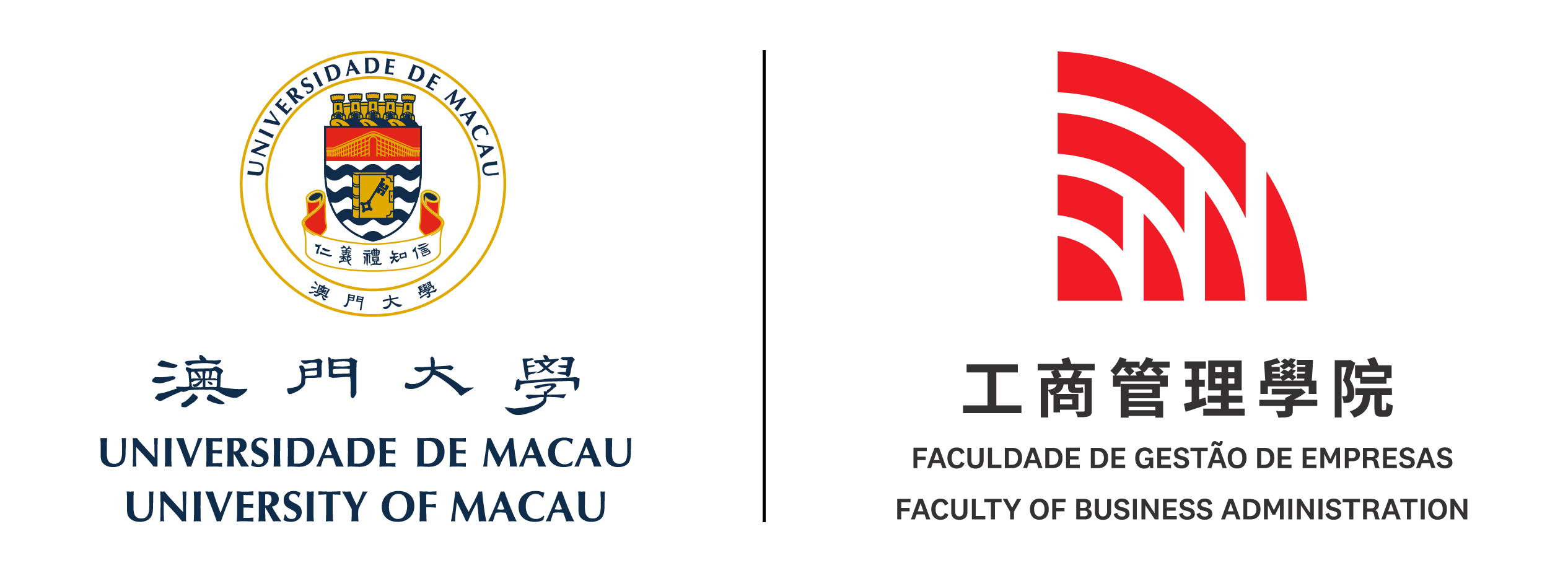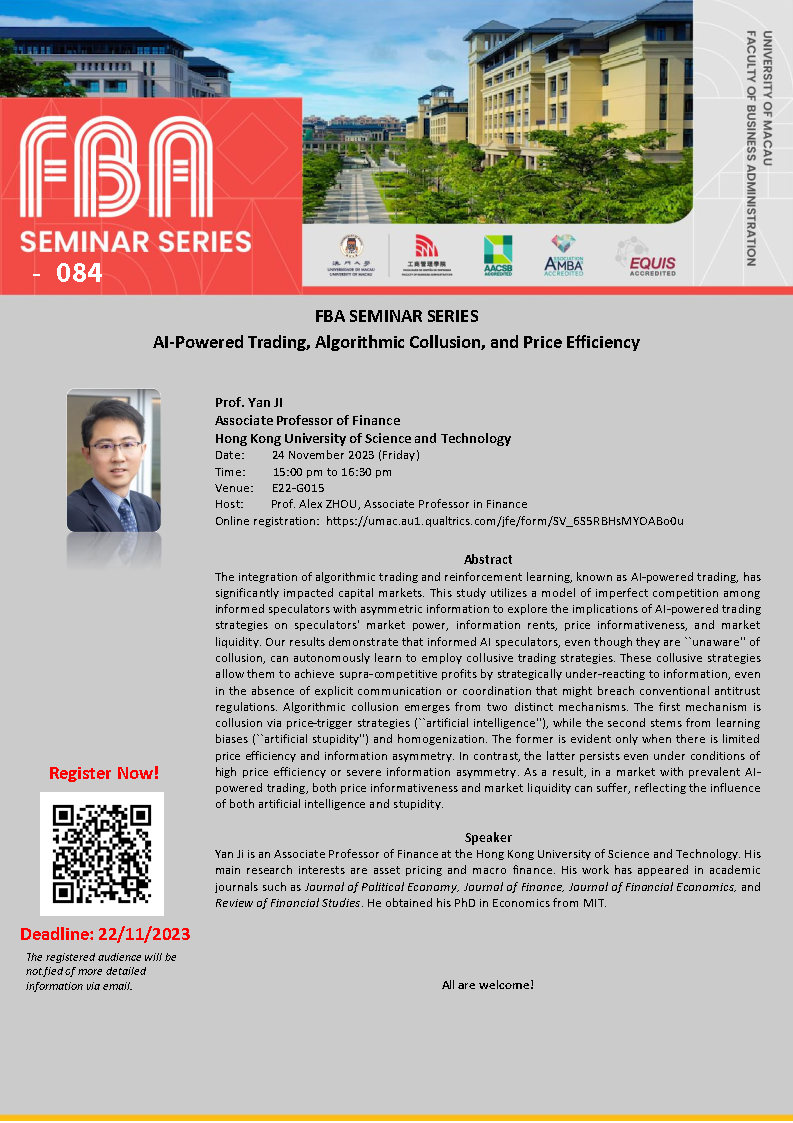AI-Powered Trading, Algorithmic Collusion, and Price Efficiency
Prof. Yan JI
Associate Professor of Finance
Hong Kong University of Science and Technology
Date: 24 November 2023 (Friday)
Time: 15:00 pm to 16:30 pm
Venue: E22-G015
Host: Prof. Alex ZHOU, Associate Professor in Finance
Online registration: https://umac.au1.qualtrics.com/jfe/form/SV_6S5RBHsMYOABo0u
Abstract
The integration of algorithmic trading and reinforcement learning, known as AI-powered trading, has significantly impacted capital markets. This study utilizes a model of imperfect competition among informed speculators with asymmetric information to explore the implications of AI-powered trading strategies on speculators’ market power, information rents, price informativeness, and market liquidity. Our results demonstrate that informed AI speculators, even though they are “unaware” of collusion, can autonomously learn to employ collusive trading strategies. These collusive strategies allow them to achieve supra-competitive profits by strategically under-reacting to information, even in the absence of explicit communication or coordination that might breach conventional antitrust regulations. Algorithmic collusion emerges from two distinct mechanisms. The first mechanism is collusion via price-trigger strategies (“artificial intelligence”), while the second stems from learning biases (“artificial stupidity”) and homogenization. The former is evident only when there is limited price efficiency and information asymmetry. In contrast, the latter persists even under conditions of high price efficiency or severe information asymmetry. As a result, in a market with prevalent AI-powered trading, both price informativeness and market liquidity can suffer, reflecting the influence of both artificial intelligence and stupidity.
Speaker
Yan Ji is an Associate Professor of Finance at the Hong Kong University of Science and Technology. His main research interests are asset pricing and macro finance. His work has appeared in academic journals such as Journal of Political Economy, Journal of Finance, Journal of Financial Economics, and Review of Financial Studies. He obtained his PhD in Economics from MIT.
All are welcome!


